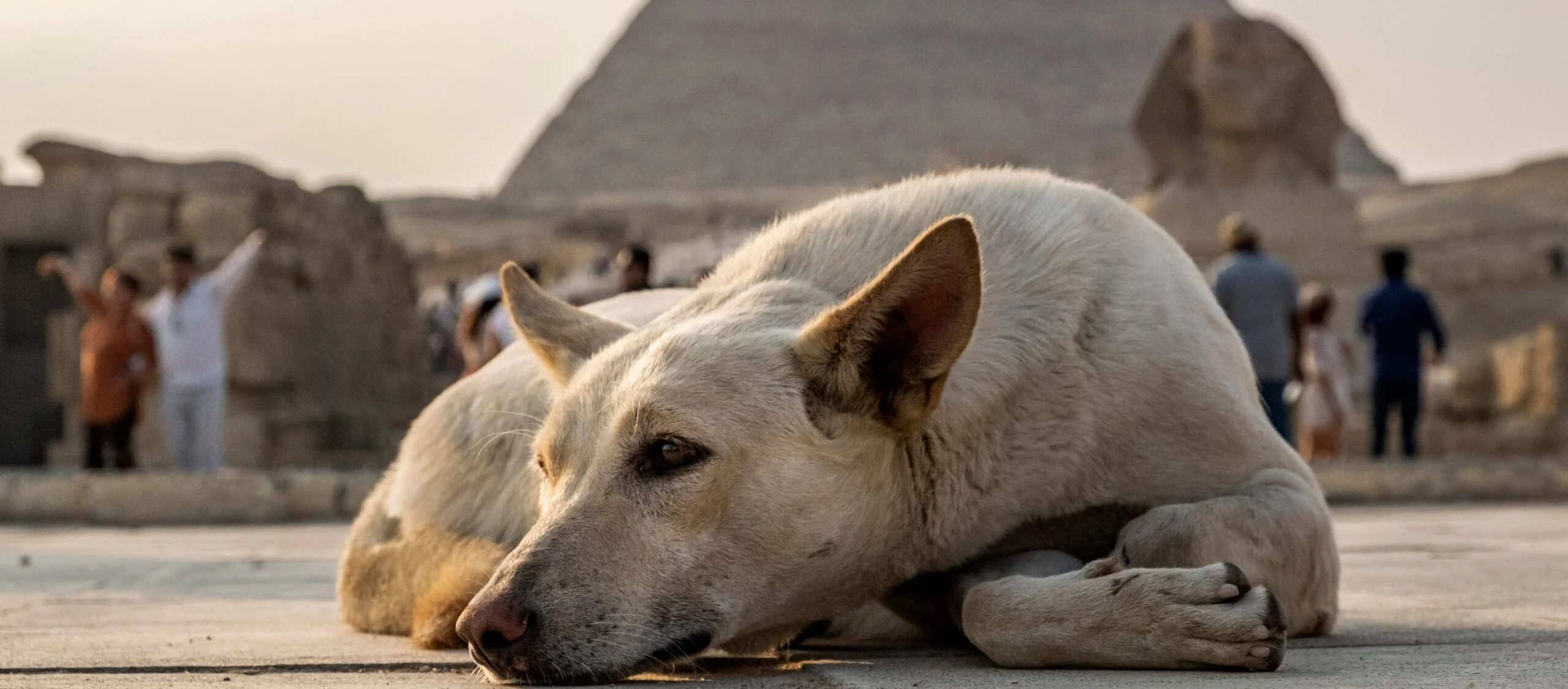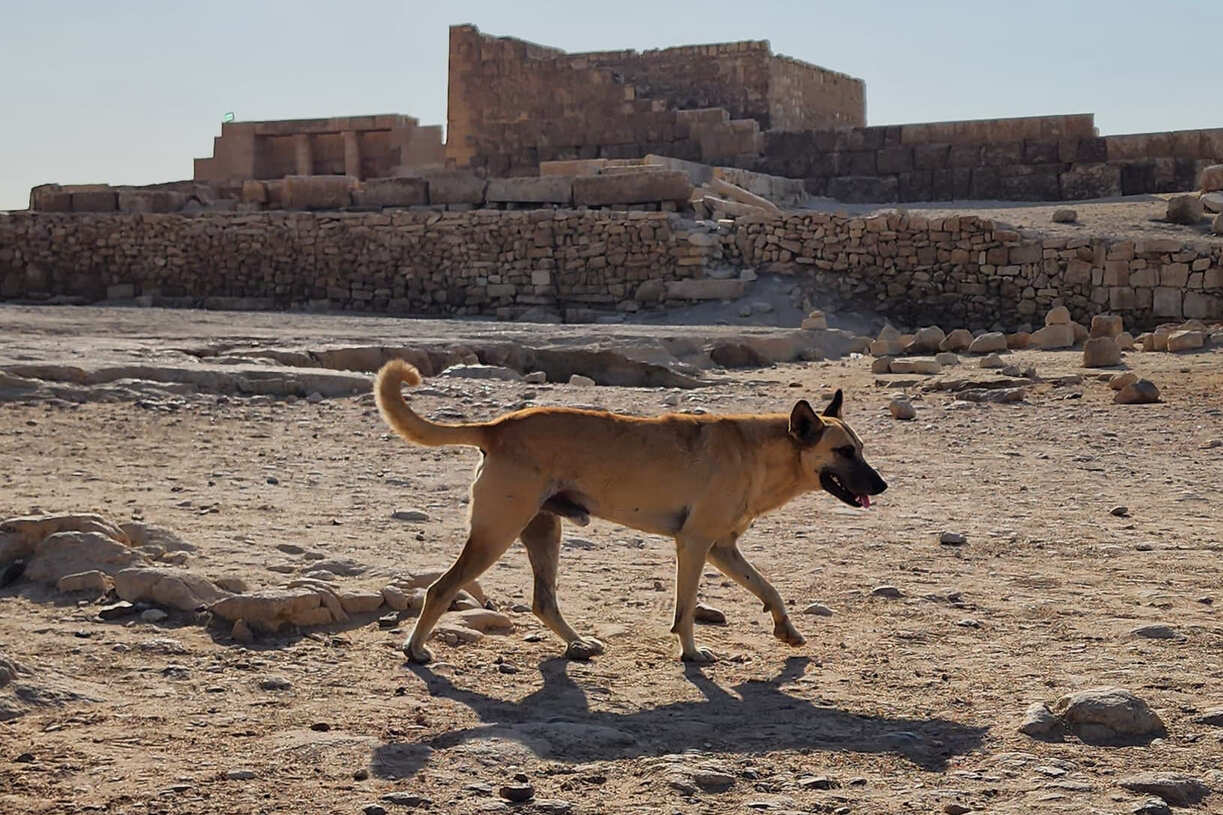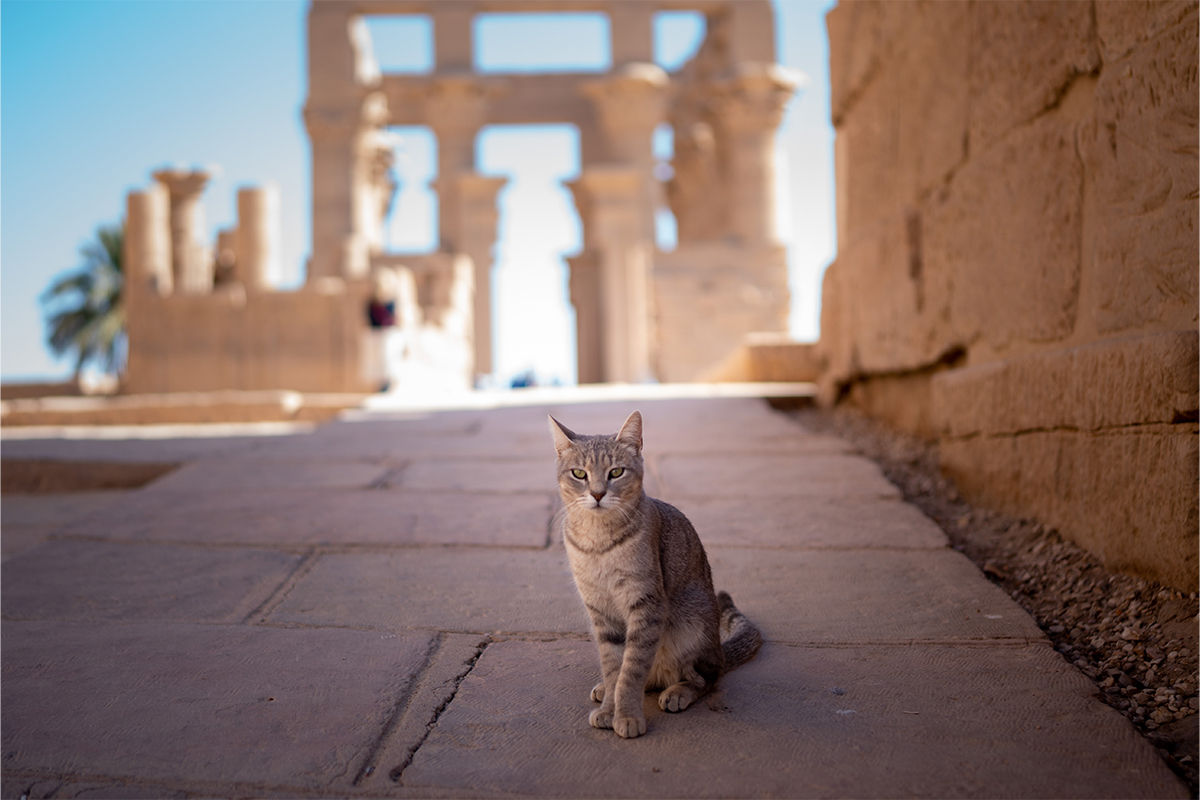
Inécia Tours Launches Initiative to Support Stray Animals in Archeological Sites
October 28 2024
Introduction
We believe that the world’s beauty is often magnified through its wildlife. From majestic elephants roaming the African savannahs to dolphins frolicking in the ocean waves, these encounters remind us of the delicate balance that exists in nature. Recently, the world witnessed a poignant moment that prompted us to reevaluate our approach to animal welfare during our tours. A stray dog (named later Boka) was spotted at the top of the Khafre Pyramid on the Giza Plateau in Egypt by the famous paraglider Marshall Mosher, highlighting the often-overlooked presence of animals at these iconic sites. This encounter has inspired us to take action, and we are proud to announce that feeding stray animals at archaeological sites in our destinations will now be an essential part of our tours. This initiative is not a one-time effort but a commitment to continuous improvement.
Our Connection to Wildlife
Our love for animals extends beyond the mere joy of observing them; it encompasses a deep-rooted responsibility to ensure their well-being. Many of our customers share this sentiment, expressing a desire for ethical travel experiences where the welfare of animals is prioritized. In response, Inécia Tours has established a commitment to work exclusively with reputable suppliers in our destinations who uphold high standards for animal care. We want our travelers to book with confidence, knowing that the lives of the animals they encounter are safeguarded.
Ethical Wildlife Encounters
In alignment with our mission, we are clear about our policies regarding wildlife attractions. Based on recommendations from leading organizations, we do not sell excursions that feature captive orcas or cetaceans, such as dolphins. We believe that there are numerous exceptional ways to appreciate these magnificent creatures in their natural habitats, and our customers have consistently expressed a preference for such experiences. Our approach is not static; we regularly review our policies to incorporate the latest guidance on responsible tourism.
Moreover, we maintain rigorous standards across all our listed attractions. Collaborating with external partners allows us to monitor and assess these venues continuously. Customer feedback is invaluable, and we encourage travelers to voice any concerns about the attractions they visit, as we are committed to transparency and improvement.
Initiative for Stray Animals in Archeological Sites

The sight of the stray dog on the Khafre Pyramid led us to reflect on the plight of animals in these historic settings. Stray dogs (called baladi dogs by locals in Egypt) often roam the Pyramids complex, facing numerous challenges, from lack of food and water to harsh environmental conditions. As part of our new initiative, Inécia Tours will collaborate with animal welfare organisations to provide food and water for these animals, ensuring they receive the care they deserve.
We want our customers to feel empowered to contribute to this cause. To that end, a portion of the prices from our tours and holidays will be donated to these organizations, at no additional cost to travelers. Additionally, we will not accept donations from individuals or organizations, ensuring that our efforts are transparent and focused on meaningful change. This funding will support ongoing efforts to provide these animals with the necessities of life and improve their living conditions.
Maintaining a Safe and Enjoyable Experience
The safety of our travelers and their families during tours is our top priority. Our trained tour guides are not only knowledgeable about the historical and cultural significance of the sites but are also equipped to handle any situations involving stray animals. We strive to create an enjoyable and responsible travel experience, where our customers can appreciate the beauty of archaeological wonders while also supporting local animal welfare.
Responsible Purchasing Practices
In addition to our commitment to animal welfare during tours, we strongly advise our customers to avoid purchasing souvenirs made from wild animals. Items such as fur, ivory, shells, seahorses, teeth, rhino horns, and turtle shells contribute to the ongoing exploitation of wildlife and disrupt natural ecosystems. We believe in promoting responsible tourism that respects both culture and nature, setting an example for other companies in the industry.
Call to Action

As we move forward with our initiative, we invite our travelers to join us in this important cause. By choosing Inécia Tours, you are not just embarking on a journey to explore the wonders of the world; you are also becoming an advocate for the voiceless animals that share our planet. Your choice to travel with us not only supports responsible tourism but also helps us make a tangible difference in the lives of stray animals. Together, we can explore the wonders of the world while nurturing a sense of responsibility towards our voiceless four-legged friends that live with us on earth.
In conclusion, the stray dog of Khafre Pyramid in Egypt has catalyzed a significant shift in our approach by integrating animal welfare into our travel philosophy. At Inécia Tours, we are committed to providing a travel experience that is both enjoyable and responsible, ensuring that our love for animals is reflected in every aspect of our tours. Together, we can create a positive impact on the lives of these animals and promote a more compassionate world. Additionally, we believe that every small action can lead to significant change. Each tour is a great opportunity to raise awareness about conservation issues and the importance of protecting both cultural and natural heritage.
 English
English
 Español
Español
